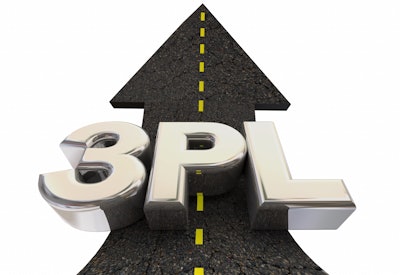
Temperature-controlled shipping is an essential component of cold chain logistics and involves the transportation of temperature-sensitive products such as pharmaceuticals, chemicals, vaccines, food and beverages at the appropriate temperature range to ensure quality, safety, and efficacy.
Using a qualified third-party logistics (3PL) expert for cold chain transportation allows shippers to move temperature-sensitive products with the utmost safety and timeliness, ensuring happy customers and an uncompromised brand reputation.
Why partner with a 3PL?
Having a flexible and adaptable 3PL partner who understands cold chain logistics is not only important for product safety, but also for compliance with regulatory standards. Many countries have strict regulations governing the transportation of temperature-sensitive products. Failure to comply with these regulations can result in fines, product recalls and damage to a company's reputation. An experienced cold chain 3PL will be well versed with these wide range of compliance regulations, making safety and due diligence a worry of the past.
3PLs understand the ins and outs of cold chain management. They know that temperature controlled shipping relies on specially designed containers that can maintain a specific temperature range. They can provide access to containers ranging from simple insulated boxes to sophisticated refrigerated trucks which are critical for preserving the integrity of perishable products, as exposure to extreme temperatures can cause irreversible damage – leading to spoilage, reduced efficacy or even safety concerns.
If fresh produce is not kept at the right temperature during transportation, it can spoil or lose its nutritional value, making it unsafe for consumption.
Planning and mitigating shipping challenges
Temperature-controlled shipping involves a range of processes and technologies, including refrigeration, temperature monitoring and data logging. Partnering with a 3PL provider ensures that temperature-sensitive products are transported safely and comply with regulatory standards through a combination of specialized equipment, trained personnel, and robust data monitoring systems.
3PLs can help mitigate one of the biggest challenges of cold chain shipping: keeping products within their required temperature range throughout the entire transportation process. This requires careful planning and continual monitoring to ensure that the products are not exposed to temperatures that could cause them to degrade or become ineffective.
Most temperature-controlled shipping focuses on refrigerated goods; however, some instances call for keeping cargo above a certain temperature. While some commodities require frozen temperature ranges, others must be transported at refrigerated or higher temperature ranges. When planning a shipment, it is important to go over all specifications and temperature requirements with the carrier or transportation provider.
One size and season does not fit all
Temperature-controlled freight is not exclusive to full truckload. Many shippers assume that these strict temperature and shipping requirements make them ineligible for less-than-truckload (LTL) options, given the mix of different products sent in one container. However, LTL shipping methods can be as flexible as the shipper needs, and temperature controlled shipping is entirely possible with the right 3PL partner.
Peak season also greatly impacts the circumstances—namely the price—of temperature controlled shipping and equipment. Due to the functionalities of supply and demand, Spring and Summer deliver a significant spike in need for cold chain logistical solutions. Because there is a limited number of reefer trailers in circulation, peak seasonal demands increase rates and make capacity swings dramatic when compared to other modes like dry freight.
Cold chain shipping can be complex, and the mistakes of poor planning can be costly for shippers. Finding a 3PL partner who is well-versed in temperature controlled logistics operations will ensure all transportation needs are met and end consumers are satisfied, regardless of the requirements.



















